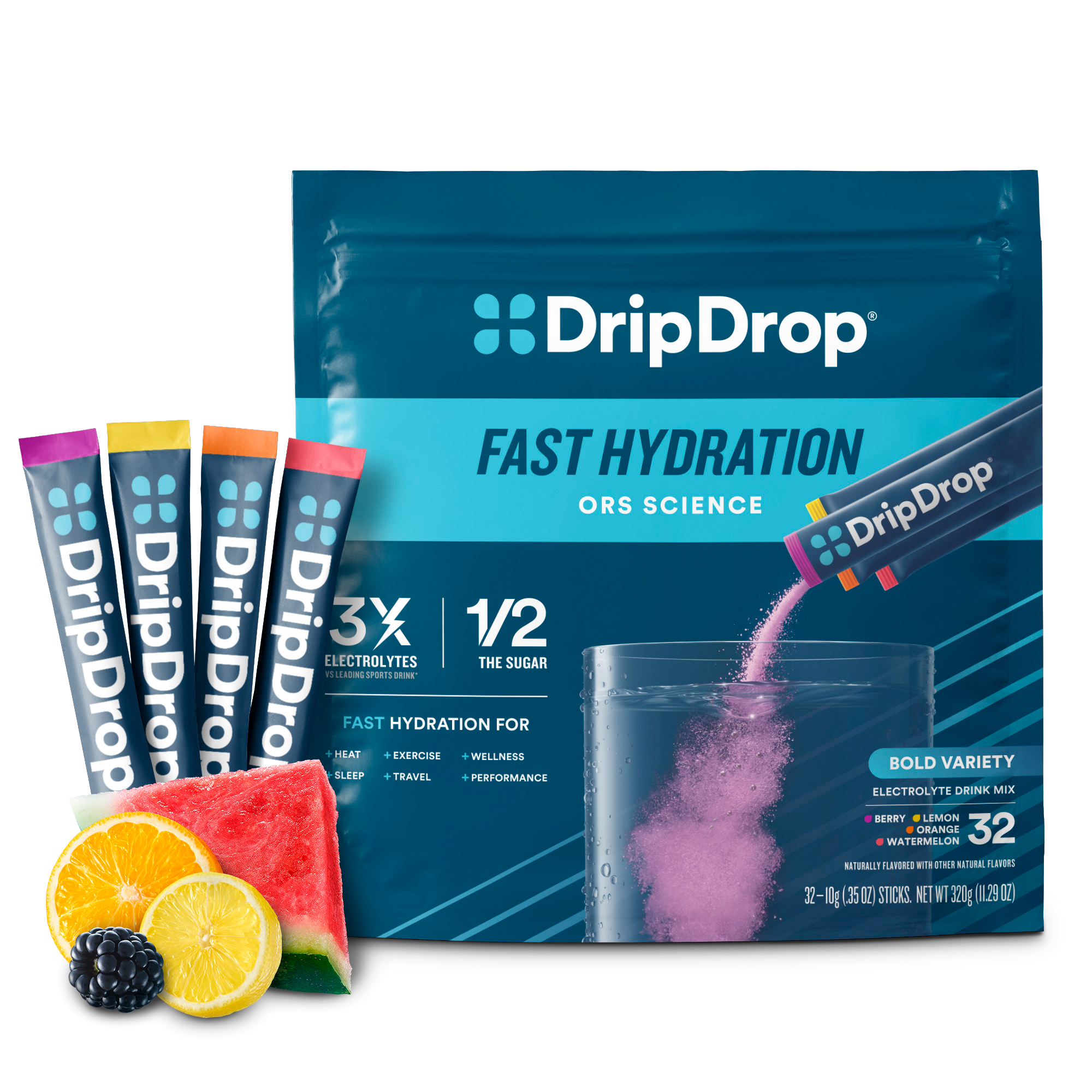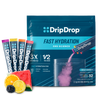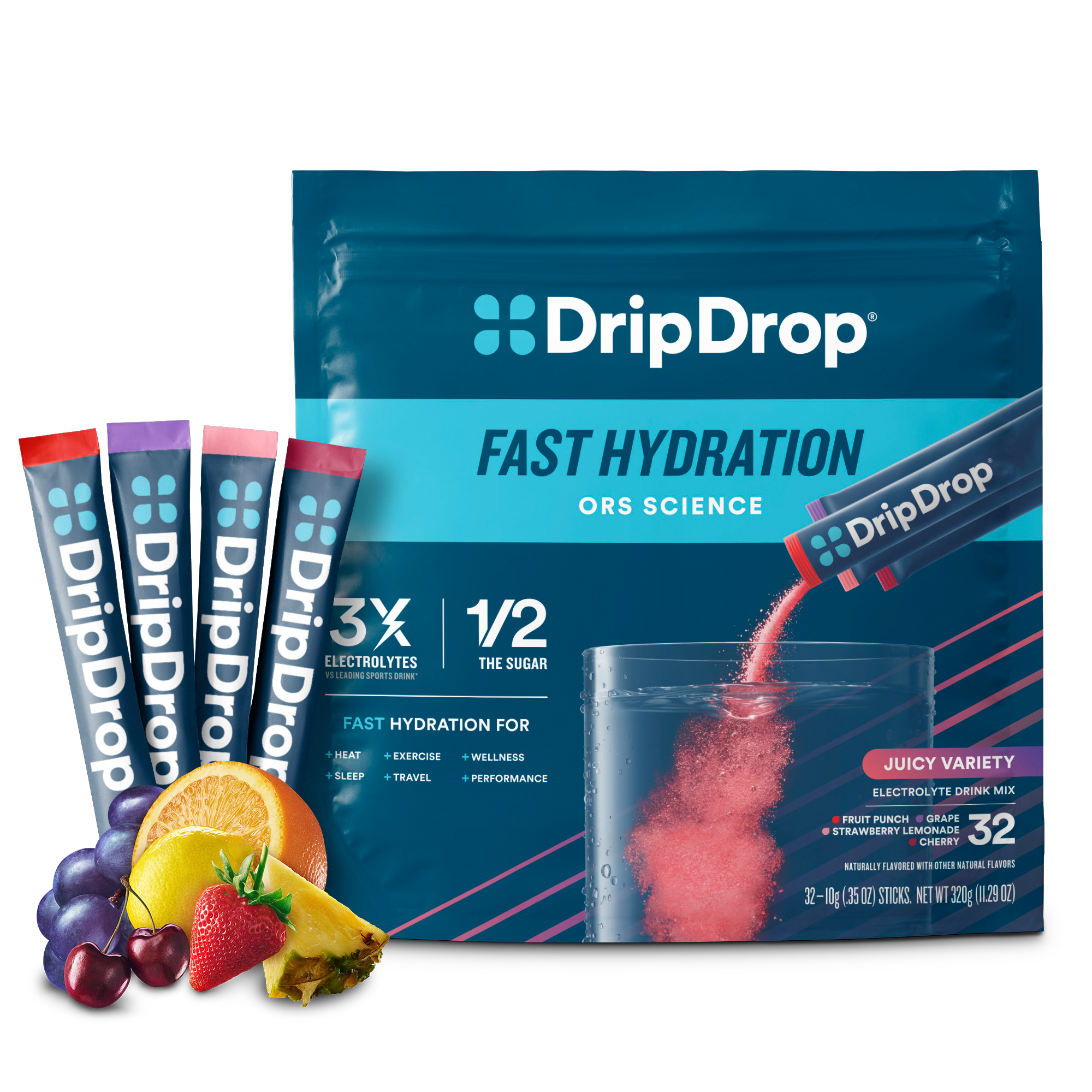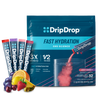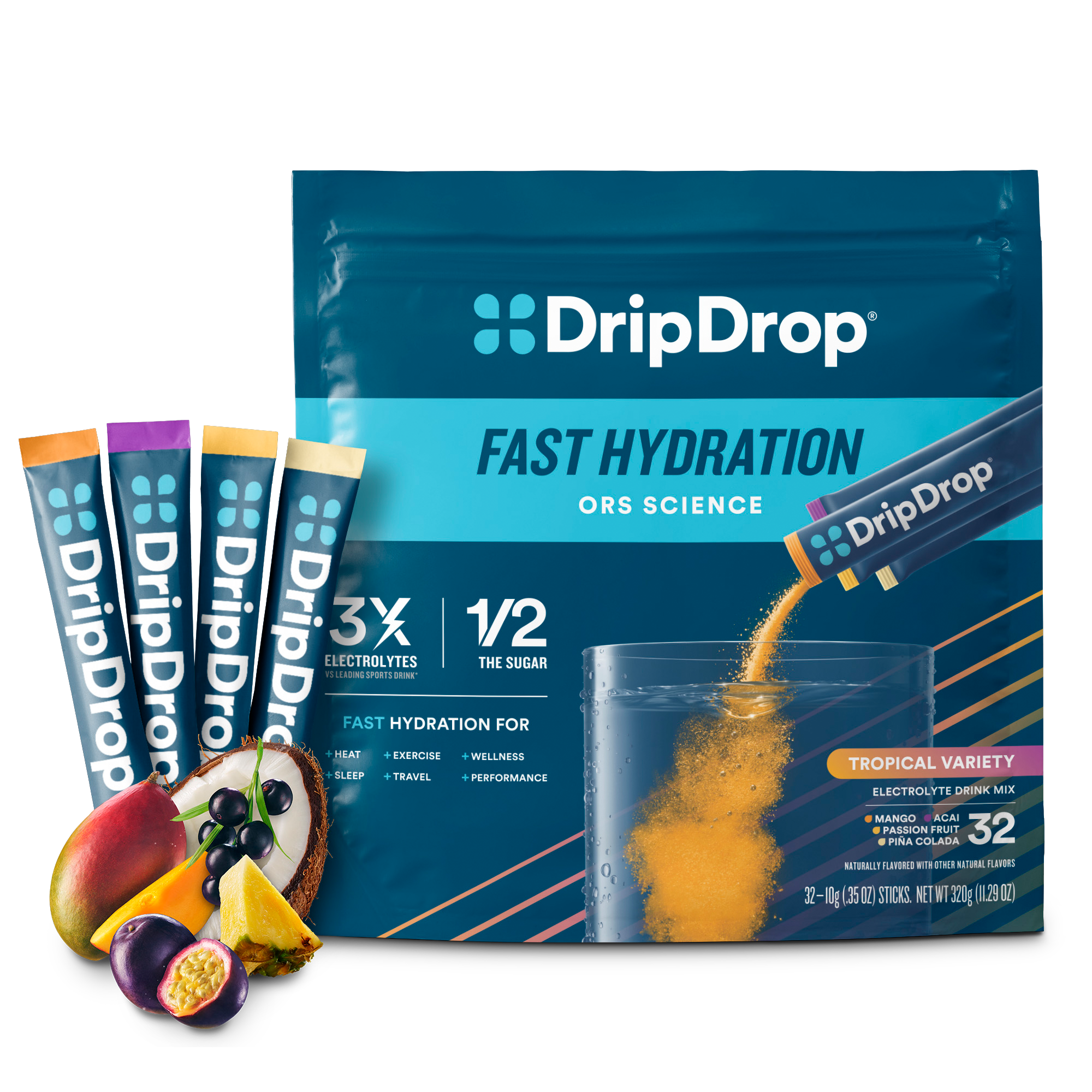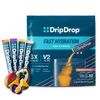Everyone knows that drinking water to stay hydrated is a vital part of staying healthy. However, your body also requires certain levels of vitamins and minerals known as electrolytes to function properly. Even if you are consuming the right amount of water each day, you may not be getting enough electrolytes.
One way to ensure that you’re staying hydrated and getting those much-needed electrolytes is by adding an electrolyte powder mix like DripDrop to your water. This doctor-developed formula was devised to offer quick dehydration relief and incorporate three times the number of electrolytes found in traditional sports drinks.
There are many different vitamins and minerals the body requires, one of which is potassium. If you’ve been feeling a bit off, you may be suffering from low potassium and not even realize it. We’ve compiled everything you need to know to recognize low potassium signs.
What are Electrolytes?
Before diving into the specifics of low potassium causes and the role of potassium in our daily health, it’s essential to understand how electrolytes help our bodies to function. Electrolytes are chemicals that create charged ions when dissolved in water, which help our bodies with a range of functions from regulating fluids to converting nutrients into energy.
The main electrolytes humans need are potassium, magnesium, calcium, sodium, chloride, and bicarbonate. We typically get these minerals from things we eat and drink, but if you’re not receiving the right amount of electrolytes, you may start to feel the impact, including signs of low potassium.
It’s most important to re-up on electrolytes after an illness, imbalance, or participating in physical activity as you can lose electrolytes through sweating. You can actively replenish your body’s electrolytes with DripDrop powder, which delivers three times the amount of electrolytes of a traditional sports drink while also rehydrating your fast.
One common low potassium cause could be that your body is sweating out electrolytes without replenishing the correct amount.
Electrolytes and Hydration
Staying hydrated throughout the day is essential to a healthy body and lifestyle, but your body doesn’t just need plain water — it also needs electrolytes. Electrolytes are charged minerals that carry signals throughout your body. When you don’t get enough electrolytes, dehydration occurs and your body can’t function properly.
Here’s a brief breakdown of essential electrolytes and why they’re important:
Sodium: Increases water retention and regulates the balance of electrolytes and water in your body
Potassium: Controls heartbeat and enables proper muscle function and contraction
Calcium: Maintains strong bones, enables nerves to carry messages and controls hormone release
Magnesium: Enables protein synthesis, supports nerve function and regulates blood glucose and blood pressure
Chloride: Regulates the amount of fluid inside and outside of cells and maintains proper blood pH level
It’s clear that electrolytes provide vital health benefits for our bodies. Incorporating DripDrop electrolyte powder into your drinking water is a great way to boost electrolyte intake. It’s an excellent source of vital minerals, including potassium. When compared to a traditional sports drink, one DripDrop packet has 185 mg of potassium while a 12-ounce serving of the traditional sports drink has just 50 mg.
Why Do We Need Potassium?
While our bodies do require a variety of electrolytes for different functions, potassium is particularly important to our muscles and metabolism. According to Harvard Health Publishing, potassium “regulates the heartbeat, ensures proper function of the muscles and nerves, and is vital for synthesizing protein and metabolizing carbohydrates.”
High amounts of potassium can be found in foods including bananas, avocados, salmon, oranges, and leafy greens. To avoid low potassium signs, it’s beneficial to implement these foods into your regular diet in addition to boosting electrolytes with DripDrop.
Low Potassium Signs
Hypokalemia is the name for low potassium levels. If you feel as though you may be suffering from signs of low potassium, you may want to consult with a medical professional. Hypokalemia is typically caused by potassium lost in the digestive tract, which can be caused by vomiting or diarrhea.
Common low potassium signs include:
Fatigue
Constipation
Weakness
Muscle cramps and spasms or twitches
Tingling or numbness
Low blood pressure
Lightheadedness
Abnormal heart rhythms
Increased urination
Excessive thirst
Some of these low potassium signs can signify a severe deficiency, so it’s always essential to consult with your doctor if you’re experiencing one or more symptoms.
Low Potassium Causes
There are a number of low potassium causes ranging from simple issues such as sweating out electrolytes without replacing them to more serious health conditions.
Vomiting or diarrhea is often a cause of low potassium, so it’s essential to consciously replenish electrolytes if you’ve been suffering from an illness resulting in either of these symptoms. Other factors such as living in a hot climate or low magnesium levels can also contribute to low potassium causes.
More severe health issues can also cause low potassium levels, which is why talking to a medical professional is always recommended.
Get Your Daily Dose of Electrolytes with DripDrop
DripDrop is an oral rehydration solution developed by a doctor to quickly deliver dehydration relief. It was specifically formulated to include the necessary amount of vital electrolytes, helping your body function at its best every day. You’ll receive all the benefits of an electrolyte drink without too much added sugar. If you’re looking to cut down your sugar intake even more, we offer DripDrop Zero with no sugar.



